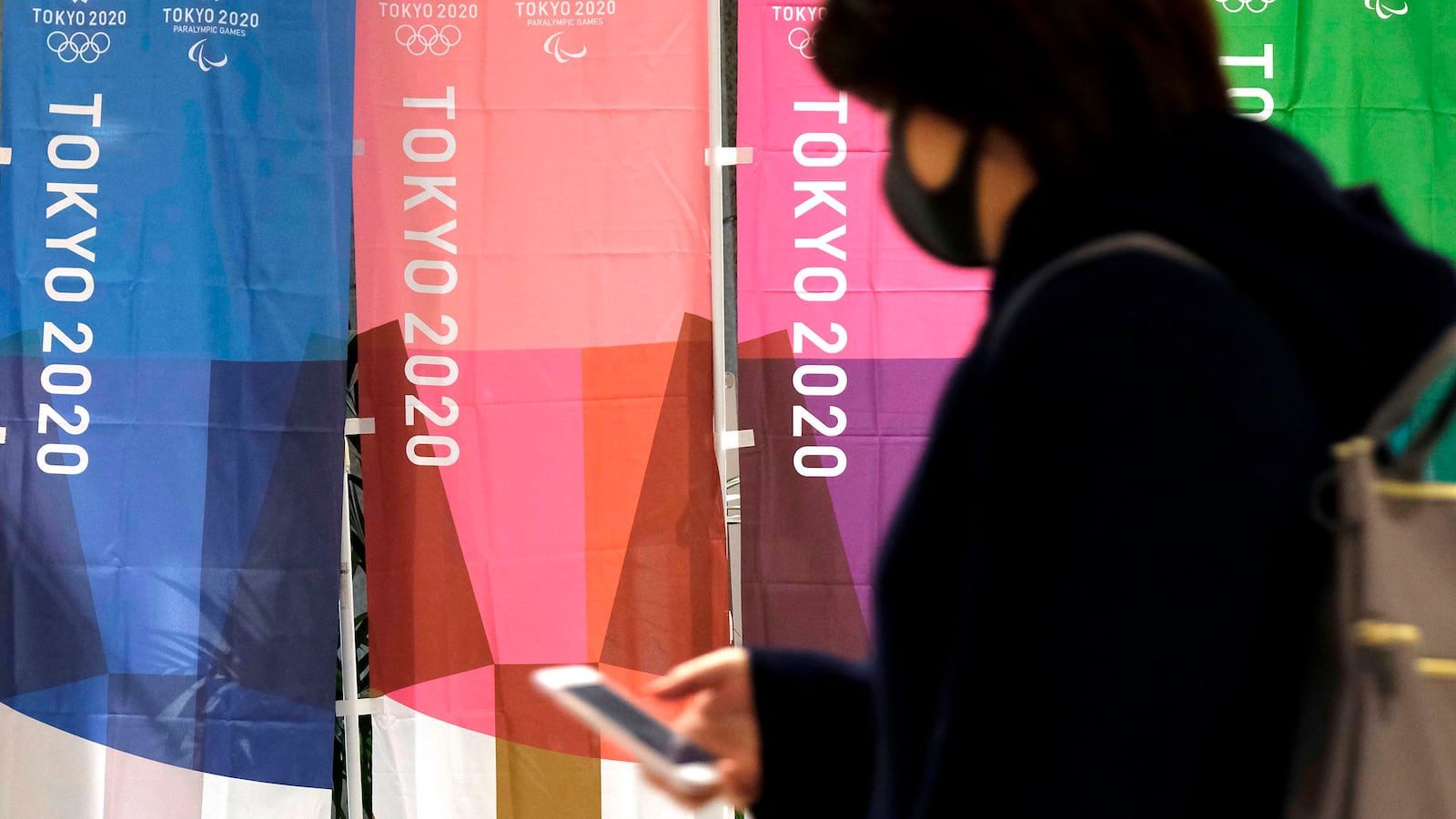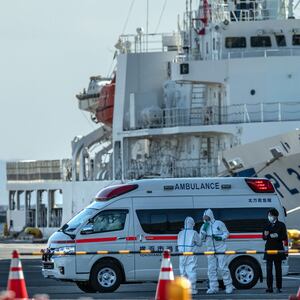TOKYO—Japan finally has postponed the ill-conceived, infernally hot, and extremely hazardous Tokyo 2020 Summer Olympics scheduled for July. And this may be the first time the coronavirus pandemic actually has saved lives.
On Tuesday evening, Japanese Prime Minister Shinzo Abe and International Olympic Committee (IOC) President Thomas Bach held an elaborately staged teleconference, ostensibly to discuss how to handle the Olympic Games in the face of the coronavirus pandemic.
In fact, it was a foregone conclusion that the Olympics would be canceled or postponed once Canada and Australia both made it clear they would not send athletes to the games.
In a roundabout rebuke to the Olympic-obsessed Abe and Tokyo’s Governor Yuriko Koike, the Canadian Olympic Committee said flatly on Monday that, “with COVID-19 and the associated risks, it is not safe for our athletes, and the health and safety of their families and the broader Canadian community for athletes to continue training towards those games.” Australia followed suit. And others were expected to do the same, although President Donald Trump, as usual, prevaricated, saying the decision would be up to Abe.
Shortly after this, Abe hinted to Japan’s parliament for the first time that the games might be put off for a while. Abe, like Trump, may be poor at reading a teleprompter or even his painstakingly prepared answers to questions Japan reporters submit in advance, but he does seem to be able to read the writing on the wall.
It must come as a disappointment for Japan’s ruling coalition for the Olympics to be postponed, despite dedicated efforts to make Japan’s coronavirus problem appear to be under control by suppressing testing and effectively doing nothing at all to stop the spread.
Now that the July 2020 Olympic dream has evanesced, maybe Japan will begin serious testing for the coronavirus. As of March 2, Japan averaged 72 tests per million people; South Korea averaged 4,099 per million. Do the math. It’s not hard to see why Japan’s official number of infected citizens remains low.
The IOC in its official statement Tuesday did throw Abe a bone: “In a very friendly and constructive meeting, the two leaders praised the work of the Tokyo 2020 Organizing Committee and noted the great progress being made in Japan to fight against COVID-19.”
Yappari. Of course they would.
Tokyo Governor Koike, who has insisted time and time again that the Olympics must go on, was present at Tuesday night’s teleconference. On March 12, after the World Health Organization (WHO) declared that coronavirus was a pandemic, Koike spouted one of her classic soundbites. “It can’t be said that the announcement of a pandemic won’t have an impact [on the Olympics]....But I think cancellation is inconceivable.”
Apparently she is now able to conceive of it and reportedly worked frantically with Abe and Yoshiro Mori, president of the Tokyo Organizing Committee, along with Japan’s Olympic Minister Seiko Hashimoto, to get the IOC to agree to a postponement rather than a cancellation.
Koike told reporters with some glee on Tuesday that the “Tokyo 2020 Olympics” would still be referred to under the name “Tokyo 2020 Olympics” even in 2021, such are the temporal displacements when a pandemic makes the world stand still. (Probably that saves on printing costs as well.)
Koike has been almost manic in her insistence that the Olympics would be held, come what may. At times she’s been reminiscent of the Iowa farmer in the movie Field Of Dreams who builds a baseball diamond in a cornfield after hearing a voice that insists, “If you build it, [they] will come.”
There is a historical element to the decision as well. Since the modern Olympics began in 1896, the games have never been postponed. In 1916, 1940, and 1944, because of the World Wars, they were simply canceled.
As noted, the Tokyo 2020 Olympics have been problematic from the beginning. Prime Minister Abe sealed the deal in 2013 by assuring the IOC that the fallout and radioactive pollution from the March 2011 Tokyo Electric Power Plant’s nuclear meltdown in Fukushima were not a problem, and that everything was “under control.” Lately, he has been saying the same thing about Japan’s coronavirus spread.
In recent years, it has become apparent that Japan lied in its proposal to the IOC when it claimed that July and August were optimum times for the games. After several summers of unprecedented high temperatures and over 100 deaths from heat-stroke, even the IOC grew concerned about the safety of the athletes playing in the Tokyo games.
In October 2019, the IOC overruled its Japanese counterparts and unilaterally decided to move the marathon to Sapporo in Northern Japan, where temperatures are slightly cooler.
French prosecutors determined, moreover, that Japan won the Olympic bid by funneling over $2.3 million in bribes to individuals with influence in determining the Olympic venue. The president of Japan's Olympic Committee, Tsunekazu Takeda, was indicted in France on corruption allegations and resigned in disgrace in May last year.
Of course, officialdom conveniently forgot about the vice-chairman of Japan’s Olympic Committee whose alleged ties to the yakuza, Japan’s mafia, came back to haunt him until he quietly left the stage.
However, in terms of cost performance the $2 million in alleged bribes was a great bargain compared to the original budget proposed for the Olympics, $7.3 billion. And the actual spending related to the events is now estimated to reach $26 billion by the Board of Audit Japan.
It is yet unclear when next year the Olympics will take place. In the best of all possible worlds, now that Japan is out of the fire for a July/August summer Olympics, perhaps they can be scheduled for October. That was the Olympic month for Japan’s games in 1964 because Abe’s predecessors understood that summer sports in Japan can be deadly.
But considering how the government is handling the coronavirus, Japan might as well just scrap the expensive new Olympic stadium with its limited air-conditioning and hold the games on a giant frying pan.
Just ask Koike, who surely believes if you build the right frying pan, they will still come.
Nathalie-Kyoko Stucky contributed to this article.







